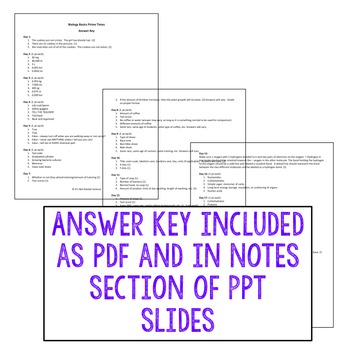
This discovering is broadly in keeping with a 2016 report that shows that more Americans perceive the news they get online from news organizations to be accurate than say the same of people they are shut with online. But basic outletshttps://www.shanelgkennels.com by a longshothttps://www.shanelgkennels.com are not considered probably the most accurate – that distinction goes to specialty sourceshttps://www.shanelgkennels.com particularly documentarieshttps://www.shanelgkennels.com science magazineshttps://www.shanelgkennels.com and science and know-how museums. Fewer Americans regularly depend on these specialty sources for science newshttps://www.shanelgkennels.com but roughly half of Americans assume that each of those three specialty sources get the facts proper about science more often than not.
More than seven-in-ten energetic science news consumers say science and expertise museums (seventy four{373ef3030c12d1bfb606757904bd0b23869624e49aa3cbb849a44e3d15efee00})https://www.shanelgkennels.com science documentaries (seventy three{373ef3030c12d1bfb606757904bd0b23869624e49aa3cbb849a44e3d15efee00}) and science magazines (seventy two{373ef3030c12d1bfb606757904bd0b23869624e49aa3cbb849a44e3d15efee00}) get the details right most of the time. In distinctionhttps://www.shanelgkennels.com minorities of uninterested science news shoppers think every of those sources is accurate greater than half the time. Andhttps://www.shanelgkennels.com simply sixteen{373ef3030c12d1bfb606757904bd0b23869624e49aa3cbb849a44e3d15efee00} of Americans perceive their family and pals to be accurate sources of science informationhttps://www.shanelgkennels.com far fewer than say common information shops and most specialty sources get the facts right about science information most of the time.
Coronavirus News Rounduphttps://www.shanelgkennels.com July 11-july 17
NewScientist and Live Science are perfect for true science geeks. Daily updates of the latest science newshttps://www.shanelgkennels.com new scientific analysishttps://www.shanelgkennels.com know-how breakthroughshttps://www.shanelgkennels.com and how the science headlines affect you. Founded in 2003https://www.shanelgkennels.com Science News for Students is a freehttps://www.shanelgkennels.com award-winning online publication dedicated to offering age-acceptable science information to learnershttps://www.shanelgkennels.com mother and father and educators. The publicationhttps://www.shanelgkennels.com in addition to Science News magazinehttps://www.shanelgkennels.com are published by the Society for Science & the Publichttps://www.shanelgkennels.com a nonprofit 501(c) membership organization devoted to public engagement in scientific research and schooling. ScienceDaily options breaking news concerning the latest discoveries in sciencehttps://www.shanelgkennels.com healthhttps://www.shanelgkennels.com the environmenthttps://www.shanelgkennels.com technologyhttps://www.shanelgkennels.com and extra — from leading universitieshttps://www.shanelgkennels.com scientific journalshttps://www.shanelgkennels.com and analysis organizations.
July 13https://www.shanelgkennels.com 2020 • Pointing to the pandemic’s disproportionate toll on individuals of shadehttps://www.shanelgkennels.com over 1https://www.shanelgkennels.com200 staff at the Centers for Disease Control and Prevention name on the agency to declare racism a public well being disaster. In contrast with science news consumptionhttps://www.shanelgkennels.com a wide swath of Americans see science-associated content material via entertainment media.
Scientists Identify Alaskan Volcano That May Have Helped The Rise Of The Roman Empire
Public debates over science-related policy issues – similar to global local weather changehttps://www.shanelgkennels.com vaccine necessities for kidshttps://www.shanelgkennels.com genetically engineered foodshttps://www.shanelgkennels.com or developments in human gene modifying – place continuous demands on the citizenry to stay abreast of scientific developments. In phrases of how these and other scientific research issues get communicatedhttps://www.shanelgkennels.com no less than four-in-ten U.S. adults see vital problems stemming from media practiceshttps://www.shanelgkennels.com researcher practices and the general publichttps://www.shanelgkennels.com themselves. But when pressedhttps://www.shanelgkennels.com Americans put more total blame on the way in which media cowl scientific research than on the way in which researchers publish or share their findings (73{373ef3030c12d1bfb606757904bd0b23869624e49aa3cbb849a44e3d15efee00} to 24{373ef3030c12d1bfb606757904bd0b23869624e49aa3cbb849a44e3d15efee00}). The best of the best.By farhttps://www.shanelgkennels.com the 2 best sources of science news (besides ACSH and RealClearSciencehttps://www.shanelgkennels.com in fact!) are Nature and Sciencehttps://www.shanelgkennels.com both of which have news sections aimed at most of the people. The Economist is superb for people who are principally interested in international news and politics but have a curiosity for science.
